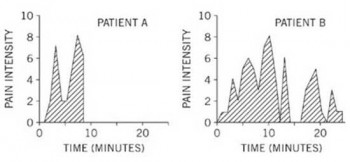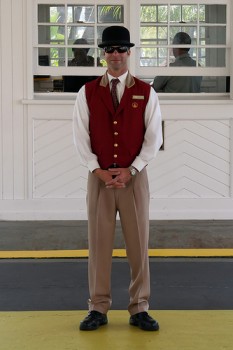A great article by Andrea Petersen appeared in the Wall Street Journal Travel section last week outlining the “Hidden Ways Hotels Court Guests Faster.” The article focused on all the ways that different hotel brands are trying to dazzle their guests with an excellent first impression.
Hotel industry executives (myself included) were likely to be very interested in this article as we often talk in this business about the importance of that first impression (or creating “a sense of arrival” as many in the industry refer to it.) It is for this reason that, upon arriving to a luxury hotel, you are often greeted in the lobby by a friendly face, an offer to assist with your luggage, and sometimes a welcome beverage or a refreshing chilled towel to help wipe away the stress of travel.
The guest room is another place where first impressions are thoughtfully considered. In luxury hotels, guests return to a room with the bed invitingly turned down, with chocolates or flowers on the pillow, the lighting and temperature conducive to relaxation, and soft music playing on the bedside radio.
The examples Petersen lists in her article include the receptionists at the Trump Hotel in Chicago coming out from behind their desk to greet guests with a handshake, DoubleTree Hotels doling out warm chocolate-chip cookies at check-in, or the Peninsula Chicago leaving deluxe welcome amenities for their guests’ children.
These are all great examples, but the ironic thing about all of this attention on the “sense of arrival” is that it probably doesn’t make much of an impact on the guests’ overall experience. Psychology research shows that people don’t really remember experiences by how they begin, they remember the peak moments, and then they remember how they end.

Peak-End Rule by Daniel Kahneman
An example of the research that supports this “peak-end” theory, is the work on colonoscopy patients done by psychologist Daniel Kahneman. Kahneman found that after a painful colonoscopy treatment, patients would forget about the overall duration of the pain they experienced and would instead remember their experience based on the peak moments of pain and on how it ended.
A patient whose colonoscopy lasted an agonizing 25 minutes, for example (Patient B), would rate the experience better and would happily come back a year later for his follow-up appointment, as long as the treatment ended with less pain. Another patient (Patient A), who only had around 8 minutes of total pain, wouldn’t come back next year because he remembers the pain of how the experience ended.
So hotels should be thinking much more about the “sense of departure” than they do about the sense of arrival, because this is how their guests will remember them. The helpful bellmen, tropical welcome drinks, and chocolates on pillows will be completely superseded by the guests’ experience of schlepping their own luggage back down to the lobby, waiting on line to check out, and haggling over discrepancies on the bill. This is the part that hotels need to get right.
We’ve all heard of the importance of making a good first impression, and it’s probably good advice. But your lasting impression is your last impression, so think about that one twice.
(Note: yes, the rhyme was intentional :-))
—
References and recommended reading:
Kahneman, D. (2011). Thinking, Fast and Slow. Farrar, Straus and Giroux.
by Jeremy McCarthy
Connect with me on facebook, twitter, or pinterest.



Very interesting article indeed! I think back to various experiences of mine whether being in a spiritual community, going to the doctor or a restaurant, and I totally agree with this. Makes me think about how important it is to always take care of clients, indeed!
Though I’m sure the colonoscopy research is valuable and partially applicable, not sure whether I completely agree. A friendly bellman who escorts you to your room in a strange city and explains not only the room’s highlights, including how to use the remotes and other electronics, but also answers other questions you may have about the area, sets the tone for the enjoyment of your stay. In our operations we always considered them the hotel’s ambassadors. As to check out, I find that the energy I project seems to be the attitude I receive. Most of the time, my mind is already concentrating on my trip to the airport or whatever and, though it’s great to have a friendly smile as I check out, I’m afraid (and regret) that I don’t always give it the credit I should! You’re right, though, Jeremy, hotels need to get BOTH right!!
This correlates with research I saw from a few years ago about the power of ending a customer experience on a high note. It has the ability to shift perceptions about the entire experience pretty dramatically, and move a “good” rating to “great.” I guess the human brain can’t objectively value all the “moments of truth” in their experience, weigh them, and assign a final grade.
Obviously, the lousy waiter who suddenly gets nice when he presents the check is not going to achieve this effect, but I agree that placing more focus on the “fond farewell” really makes a difference.
I had a great checkout experience at the W Westwood on Monday morning, Jeremy. When someone is solicitous when you’re *leaving*, i.e., the transaction is over, that does make a big impression.
I would love to see more hotel departure experiences by car include a windshield cleaning!
So you’re saying that the hotel experience is like a COLONOSCOPY? 🙂 How can someone compare a colonoscopy with an hotel experience? Even as unpleasant a hotel sejour may be, it is hardly comparable with a rectal examination. Saying this however, I do agree with you that first and last impression should count equally.
Thanks Kathryn, You make really good points. Actually I could have just as easily have written an article about why first impressions ARE important and I could have done it citing the same psychologist’s research. First impressions do have a big impact on our experience of things because that’s the way the mind works: we quickly make a judgment of things based on whatever preliminary info we get and then we are heavily biased on interpreting later parts of the experience to “fit” our mental model of what our first intuition was. But the “peak-end” or recency effect will have a big impact on our memory of the experience after. And this “remembering self” as Kahneman would call it, is the one that will decide to come back to your hotel or recommend it to a friend later. This is probably worthy of another article in and of itself (hmmmm) but you are right, they both are important!
Thanks Peggy! I know there is research showing waiters who write a personal thank you note on the bill get higher tips, so maybe that is a part of the same effect. I like the car windshield cleaning idea.
LOL Roman, yes maybe it is a bit of a stretch to compare a luxury hotel experience to a rectal exam (I did think about that when I wrote this!) But it is a good example of the peak-end rule at play!
Yes I agree the last is the most Important, while the first depends also on flight, taxi ride, sleep, and wait time to check in…
The last is all on the Hotel.
My first impressions in any hotel are prices in the mini-bar. More seriously, Thinking Fast and Slow by Kahneman (a recent best seller, believe it or not) is an excellent overview of many of these topics, written in an accessible manner. As to first impressions (or first and second level consciousness), he claims we give too much weight to their reliability. Think back to the first week of school (name your school – for MAPPsters in might be Immersion Week). If you were like I, you probably sized up your peers in an instant and decided with whom you would be befriend. Now, think back to that group, and ask who your closest friends from that time in your life. I bet there is some wide variation.